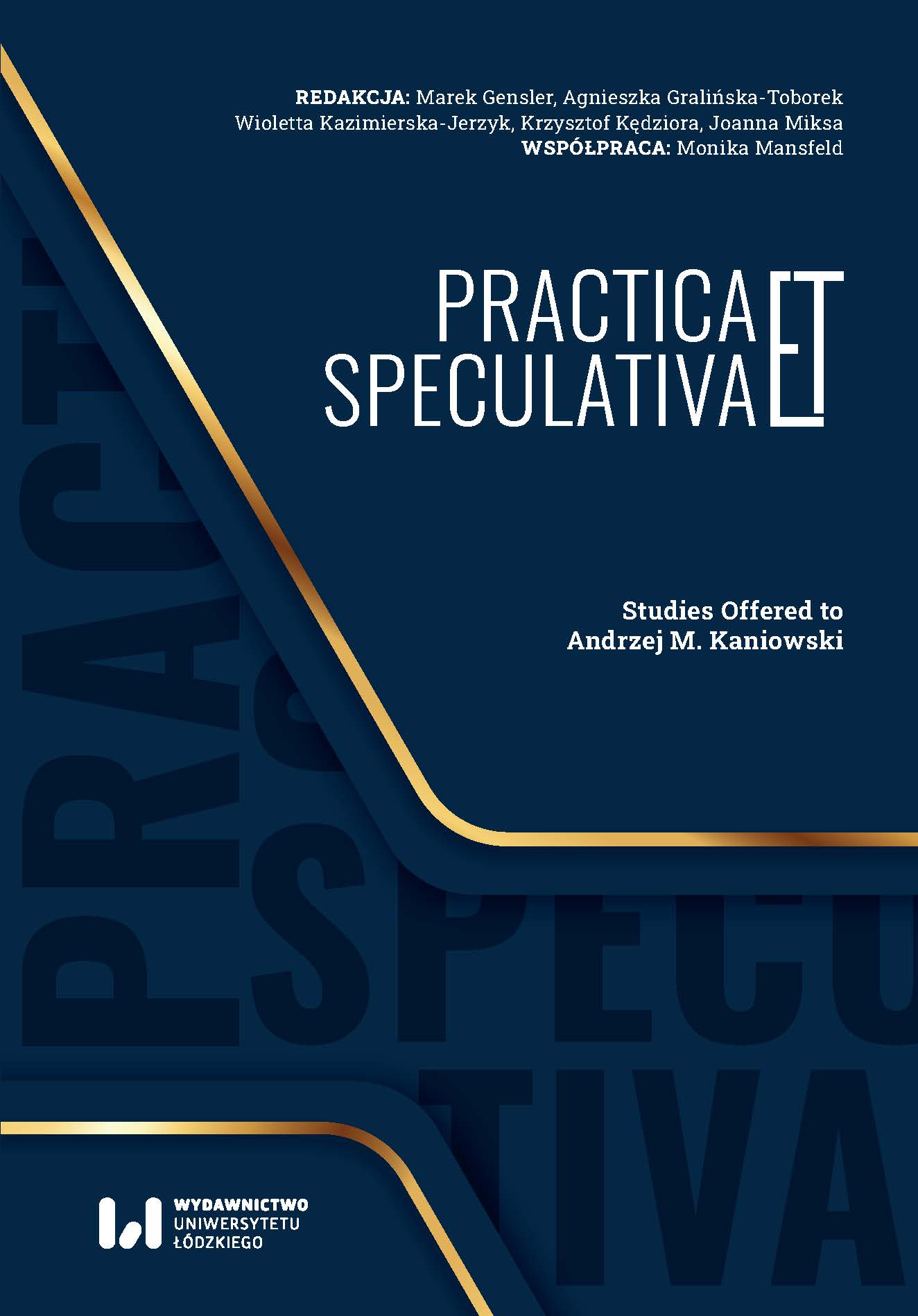Miejsce szczęścia w Kantowskiej antropologii moralnej
A role of happiness in Kant's moral anthropology
Author(s): Joanna Miksa
Subject(s): Philosophy, Ethics / Practical Philosophy
Published by: Wydawnictwo Uniwersytetu Łódzkiego
Keywords: anthropology;practical philosophy;happiness; duties of virtue
Summary/Abstract: In my paper I propose to analyse the problem of happiness in Kantian philosophy by taking into consideration the antropological perspective. I undertake to show that contrary to what is often said about Kant, he respected the pivotal role of quest after happiness in human nature. Kantian anthropology consists of two parts: practical and pragmatic. Practical anthropology is a science whose object is the human nature as it is actually given. The happiness there is defined as a goal shared by the whole humankind. Pragmatic anthropology is a project of evolution of the human kind according to the laws prescribed by the pure practical reason. The notion of happiness is included in the notion of the highest goodness. Kant defines it as happiness that belongs to those who are morally good. The happiness is a subject of analysis in the framework of discussion on duties of virtue. The imperative of love for our next of kin should be put into practice through helping the others to achieve whatever that makes them happy – as long as their aims are compatible with the moral law. All the arguments I gathered in this paper make one say that according to Kant happiness and morality do not exclude each other. Happiness is a part of the description of the human nature and morality a project of the evolution of moral agents, but their moral evolution is not to consist in destroying their natural characteristics. Morality only requires taht a normative order should be introduced as far as satisfying natural needs is concerned and the assumption is that morality and our nature can become harmonised. Especially interesting is the duty of helping the others in their search after happiness. Its presence in Kant's philosophy can be interpreted as an argument for rethinking of the relation between morality and empirically given nature of the humankind. Even though as far as its origin is concerned, the moral law does not have anything in common with the empirically given nature of the humankind, still, the putting into practice of the moral law is not conceived as a plan to fight the human nature but rather to limit it according to the moral law.
Book: Practica et Speculativa
- Page Range: 99-116
- Page Count: 18
- Publication Year: 2022
- Language: Polish
- Content File-PDF

